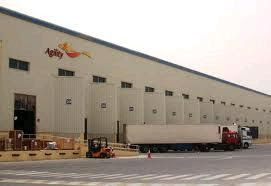The Freight Forwarders in commercial aspects
 An agent is probably best described as a person who is entrusted with the business of another (principal) and act on the others' (principal's) behalf. The term "Freight Forwarders" further qualifies this definition limiting the activities of those areas of commerce that deal primarily with importing, exporting and clearance of vessel and aircraft cargoes.
An agent is probably best described as a person who is entrusted with the business of another (principal) and act on the others' (principal's) behalf. The term "Freight Forwarders" further qualifies this definition limiting the activities of those areas of commerce that deal primarily with importing, exporting and clearance of vessel and aircraft cargoes.The freight forwarder does not normally import or export on his own account but he handles the movement of goods from or to the port and attends to all the necessary documentation required for the inward or outward clearance of goods and carries through "Forwarding".
The freight forwarder is in a unique intermediary position acting as a "go-in-between" for his client in dealings with shipping companies, insurance companies and government agencies of all kinds but predominantly of course the Customs Department.
It is from this unique standpoint that he can most efficiently act in the best interest of his clients ensuring at all time adherence to Customs regulations and requirements. The Customs Act places certain obligations on owners of goods particularly in correct and accurate declaration and classification of goods imported.
The owner or his employee may choose to deal directly with the Customs Department in such matters. However, in many instances these obligations requires specialized expertise which is sometimes go beyond the competence of an owner and the use of freight forwarders is often more convenient for the importer.
In many countries, the Customs Act provides for the licensing of freight forwarders who provide vital services to the business community in representing owners of goods in complying with the provisions of the Customs Act and what ever regulations that governs the trade.


